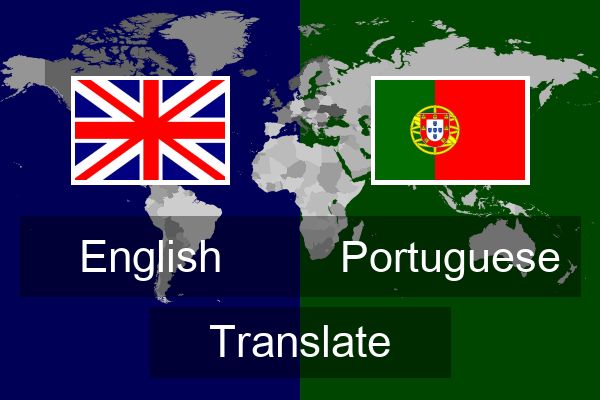Leading Tips for Perfect English to Portuguese Translation Solutions
Achieving exceptional English to Portuguese translation calls for even more than simple word-for-word conversion; it demands an understanding of social nuances and etymological intricacies. Picking qualified translators who are both well-versed and culturally mindful is critical - English To Portuguese Translation. What various other crucial variables should be considered to elevate translation high quality further?
Understand Cultural Nuances
When converting from English to Portuguese, grasping the social subtleties is crucial for creating a powerful and precise text. The Portuguese-speaking globe varies, including numerous regions, each with its distinctive custom-mades, idioms, and social standards. A translator should be attuned to these subtleties to make certain that the translation not only conveys the desired message however also resonates with the target audience.
For example, colloquial expressions in English may not have straight equivalents in Portuguese. An expression that functions well in one society could result in confusion or misinterpretation in another. Recognizing regional languages and variants, such as those located in Brazil and Portugal, is vital; words might hold various undertones or uses depending on the location.
Additionally, cultural context plays a substantial duty in translation. Consideration of historical, social, and political factors can influence language choices and tone. This cultural understanding enables for the adjustment of material that straightens with local worths and assumptions, consequently improving the performance of communication. Inevitably, a comprehensive understanding of social nuances is important for delivering translations that are not only linguistically exact but also culturally appropriate and appealing.
Choose Qualified Translators
Choosing qualified translators is an essential action in making sure the precision and quality of English to Portuguese translations. A translator's competence not only encompasses language proficiency yet additionally a deep understanding of cultural context, colloquial expressions, and industry-specific terminology. When selecting a translator, focus on those with official training in translation researches or grammars, along with relevant certifications that show their expert proficiency.
Experience plays a pivotal role also; translators concentrating on specific fields-- such as lawful, clinical, or technical-- are more probable to provide specific translations customized to the sector's criteria (English To Portuguese Translation). Additionally, consider their portfolio and customer endorsements to examine their previous work quality and integrity
Engage translators that are indigenous Portuguese audio speakers, as they have an innate understanding of the language's nuances and local dialects. This familiarity enhances the translation's credibility and performance.
Usage Contextual References
.jpeg)
When translating, it is necessary to identify idiomatic expressions and cultural references that might not have direct equivalents in Portuguese. For circumstances, particular expressions that reverberate in English may require adjustment to communicate the exact same psychological weight or cultural value in Portuguese. Using contextual referrals can assist translators select the ideal terms and style, therefore enhancing the overall clarity and impact of the translation.

Emphasis on Localization
Localization plays an important duty in the translation process from English to Portuguese, as it makes certain that the equated web content is pertinent and culturally proper to the target market. English To Portuguese Translation. This procedure exceeds simple translation; it entails adapting the content to the social, social, and etymological nuances certain to Portuguese-speaking regions
Understanding regional expressions, personalizeds, and preferences is crucial. Specific expressions or references that resonate with an English-speaking target market might not have the same influence on Portuguese speakers. It is vital to think about regional variants, such as Brazilian Portuguese versus European Portuguese, as each has unique vocabulary and stylistic differences.
In addition, localization includes format, such as date and time formats, currency, and dimension units, which can differ significantly across societies. This interest to detail fosters a link with the target market, improving interaction and comprehension.
Moreover, employing regional languages and slang can supply authenticity, making the content more relatable. By concentrating on localization in English to Portuguese translation, companies can properly connect their message, construct trust fund with their audience, and eventually achieve their intended goals.
Testimonial and Edit Completely
Comprehensive review and editing are essential action in the translation procedure, especially when transforming English content into Portuguese. This phase guarantees that the converted product not only keeps the original significance but likewise reverberates well with the target audience. Offered the etymological and cultural subtleties, a meticulous technique to examine and editing and enhancing is crucial.
Begin by comparing the original English message with the Portuguese translation, paying attention to terms, tone, and context. It's important to guarantee that cultural referrals and colloquial expressions are appropriately adjusted for the Portuguese audience. Engaging a 2nd translator or an indigenous audio speaker for this evaluation process can supply indispensable insights and capture errors that might have been neglected.
In addition, check for grammatical precision and stylistic uniformity throughout the paper. Typical difficulties such as incorrect cognates or unclear phrases need to be addressed to stay clear of misconception.
Verdict
Attaining phenomenal English to Portuguese translation services requires a thorough strategy that incorporates understanding social subtleties, picking certified translators, making use of contextual recommendations, prioritizing localization, and performing complete evaluations and edits. read this post here Each component plays a vital role in making certain that translations are not only precise but likewise reverberate with the target market. By executing these techniques, organizations can improve the efficiency of their interaction and cultivate a much deeper connection with Portuguese-speaking target markets.
Accomplishing outstanding English to Portuguese translation needs even more than plain word-for-word conversion; it requires an understanding of cultural subtleties and linguistic details.Selecting certified translators is an essential step in ensuring the accuracy and quality of English to Portuguese translations.Detailed evaluation and editing are important steps in the translation process, particularly when transforming English web content right into Portuguese.Begin by contrasting the original English text with the Portuguese translation, paying close focus to tone, context, and terms.Accomplishing phenomenal English to Portuguese translation solutions requires a thorough strategy that includes understanding social More hints subtleties, picking qualified translators, using contextual references, focusing on localization, and performing complete testimonials and edits.